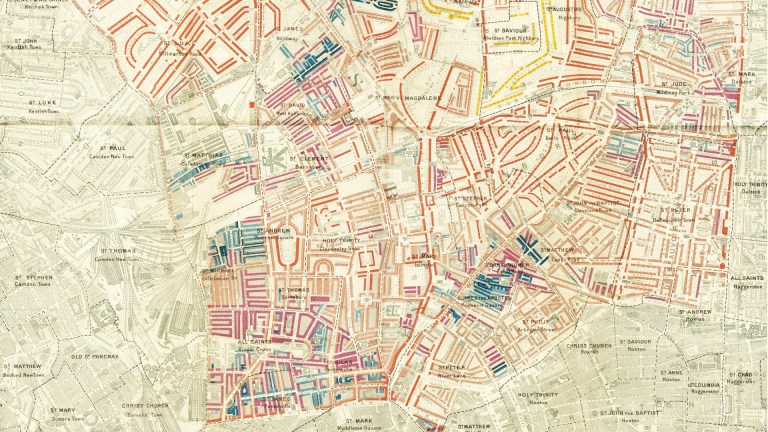I once saw someone take apart the remains of an atomic bomb with a pink vibrator. Obviously, I had to ask the role of a sex toy in deactivating nukes, and the scientist happily obliged my curiosity.
As part of the process, he explained, the team needed to agitate their plutonium. This had proved tricky; it wasn’t easy to find something small, cheap and wipe-clean that could shake a sample of the world’s deadliest material within the confines of a lead-lined workspace.
Eventually, the team had decided to pop down to the local red-light district and buy a gyrating butt plug – the perfect tool for the job. Unfortunately, the scientist continued, the device he was holding wasn’t the original, which had broken on the first day.
One team member had been sent back to the sex shop, where he’d passed the device over and said: “I’m really sorry, but after two hours of continuous use my anal vibrator broke down, can I have another?”
Lockdowns have taken income away from hundreds of Big Issue sellers. Support The Big Issue and our vendors by signing up for a subscription.
Stories like this crop up all the time at the edges of science. It’s part of the reason I fell in love with modern element discovery. While most of us are familiar with the lighter parts of the periodic table – things such as hydrogen, oxygen or iron – I’m interested in the extreme frontier of chemistry, the radioactive stuff that barely exists at all.
Scientists have identified 118 elements so far, but we think we’re missing at least another 55 that make up our universe. These missing elements are ‘superheavy’ – too weird and unstable to be found on Earth. Instead, we have to create them, much like Tony Stark did in Iron Man 2, by smashing atoms together in particle accelerators to mimic the intense cosmic furnace of neutron stars colliding.
Feast your eyes on the fantastic new jacket for #Superheavy by @ChemistryKit. Publishing next June to coincide with the 150th anniversary of the periodic table! �Ǫ�ǩ pic.twitter.com/gv9RE0G7SB
— Bloomsbury Sigma (@sigmascience) July 24, 2018
These elements are found as single atoms, a billion times smaller than the palm of your hand, and usually only last for minutes or seconds before they break apart. It’s tough work, but where else can you try to name one of the fundamental building blocks of matter after Lemmy from Motörhead, just because it’s a heavy metal?
We’ve been making elements like this since the Second World War, and it’s a quest filled with astonishing tales. Plutonium was first isolated in 1942 by a trio of twentysomethings working in a stinky attic.
Three years later, after building a nuclear reactor under the bleachers of a sports stadium and constructing a secret city fed by KFC founder Colonel Sanders, it was used to make the world’s first atomic bomb.
Mendelevium, named after the Russian bigamist who created the periodic table in the first place, was discovered with help of a Volkswagen Beetle driving hell-for-leather up the side of a hill.
And two other elements, einsteinium and fermium, were found by ordering fighter pilots to fly inside a thermonuclear mushroom cloud. One of the men didn’t come home.
Element hunts no longer involve flying through atomic clouds, skulking in attics or lurking under sports stadiums. They take place in purpose-built labs, using machines that cost millions. Even so, making an element is the equivalent of firing 12 trillion bullets at a needle in a haystack, hoping the bullet and needle fuse together into something never seen before, then catching it before it vanishes in the blink of an eye.
It’s my privilege to know the people who work to create these impossible atoms. I’ve drunk vodka with Russian physicist Yuri Oganessian, the only living person to have an element named after him; I’ve hung out with Clarice Phelps, the first black woman to discover an element; and I’ve seen the world’s supply of californium, the heaviest element that’s actually made in large enough amounts to be visible. Looking at a pale green dot at the bottom of a test tube and knowing it is, in that instant, the rarest substance in the universe is a feeling that can’t be put into words.
I’m often asked why people should care about these superheavy elements. What’s the point of searching for something that lasts less than a second? A simple answer is that we don’t know yet.
“I’m often asked why people should care about these superheavy elements. What’s the point of searching for something that lasts less than a second? A simple answer is that we don’t know yet.”
Many of the elements we’ve created have uses that couldn’t have been imagined when they were discovered. They power space probes, treat cancer, and make your smoke detector work. Future elements could revolutionise our lives in ways we can’t yet conceive.
However, I believe the true answer is even simpler. We are explorers and pioneers. We hunt elements, even at their most ephemeral, because it pushes the boundaries of human knowledge and gifts us a greater understanding of the jigsaw pieces that make up all of creation. We don’t just want to know, we need to know. And if we can find out using a sex toy, then all the better.
Superheavy: Making and Breaking the Periodic Table by Kit Chapman is out in paperback on January 21 (Bloomsbury Sigma, £10.99)









